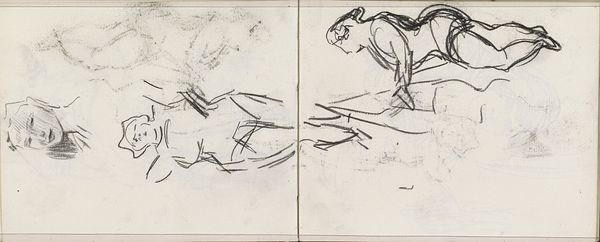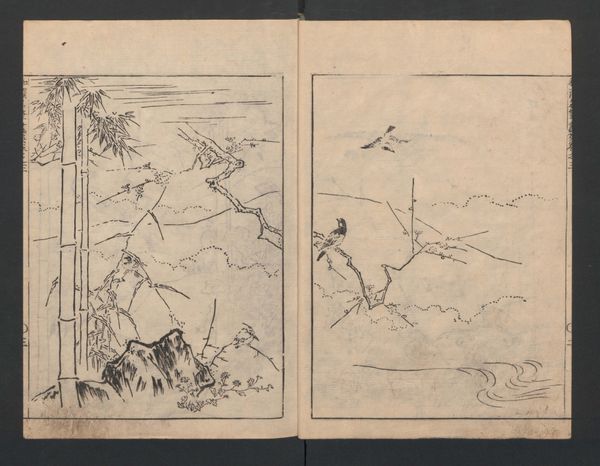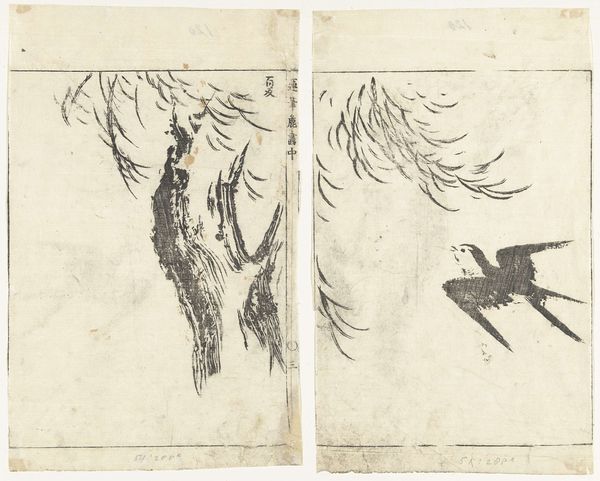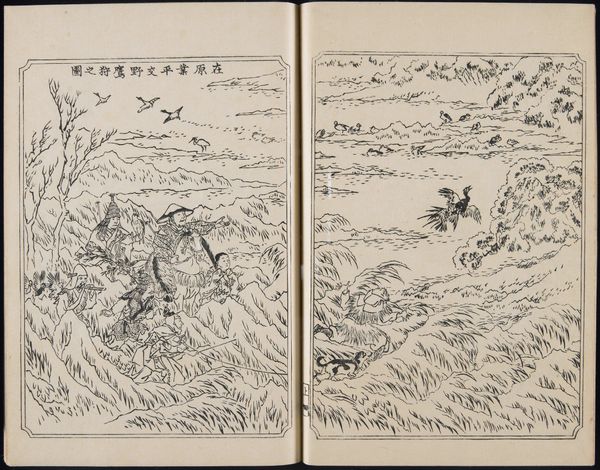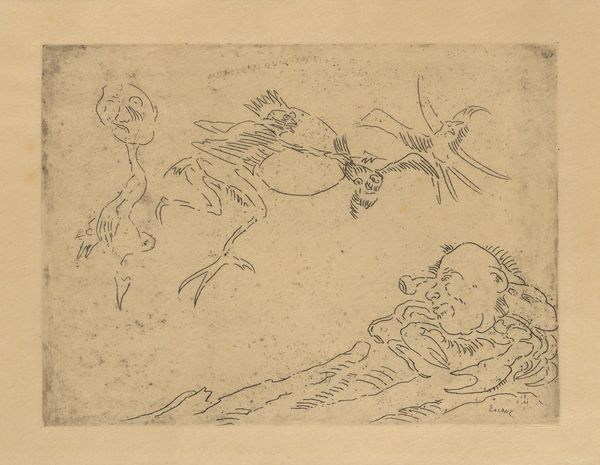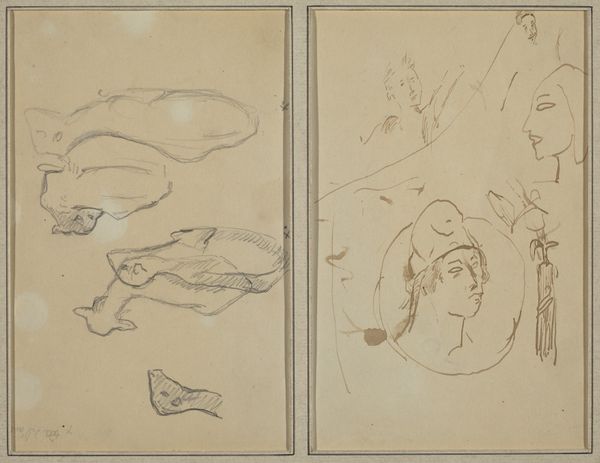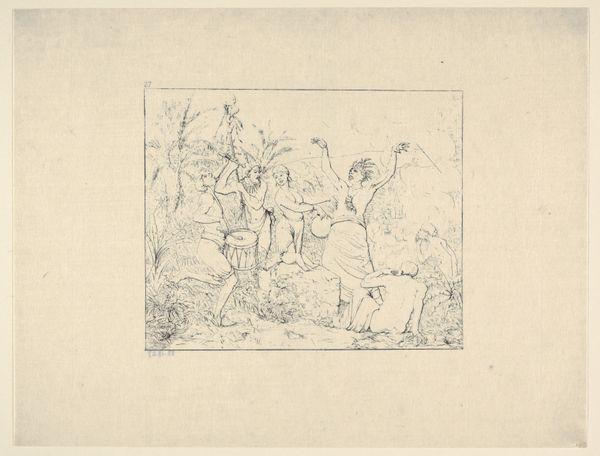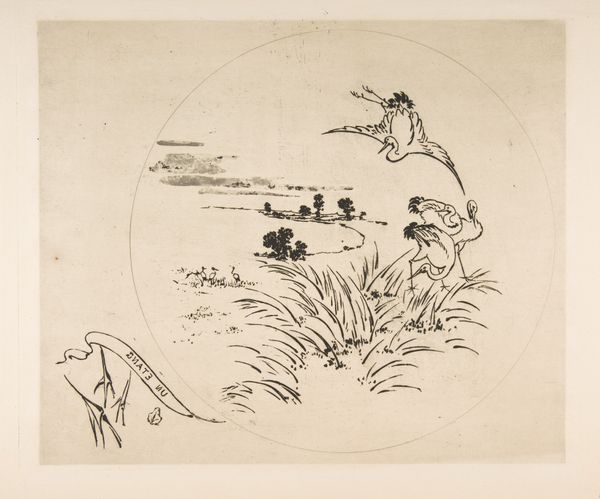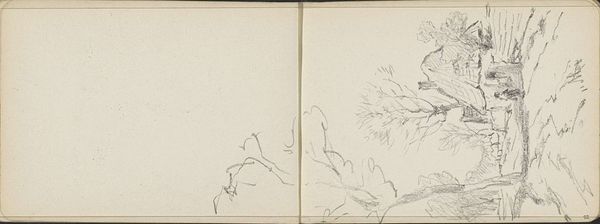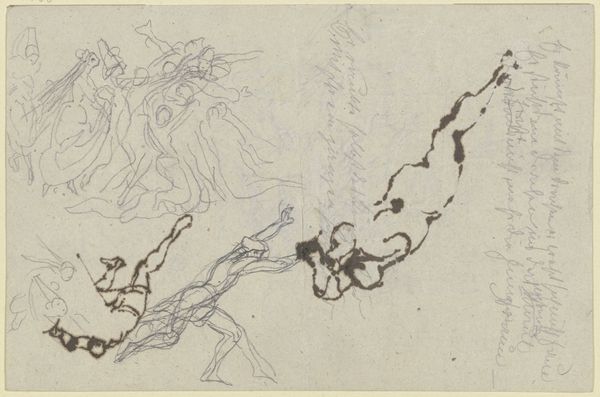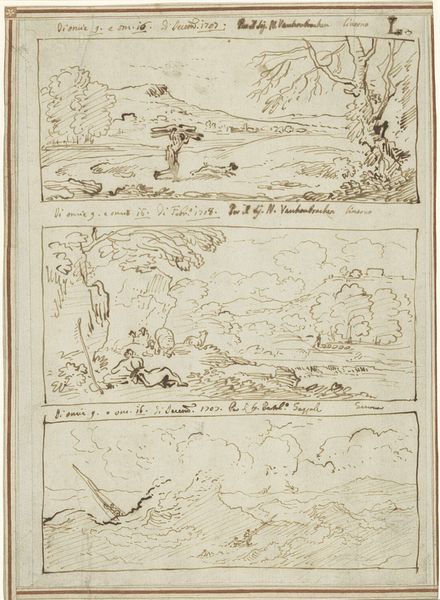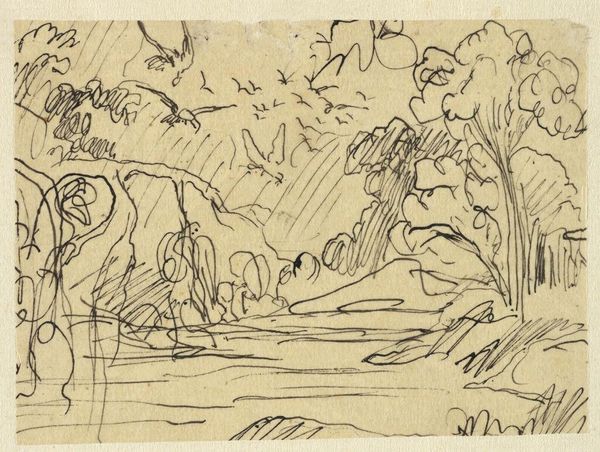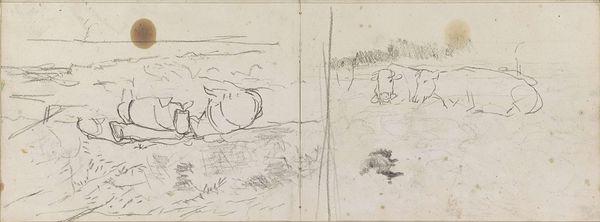
drawing, print, ink, woodcut
#
drawing
#
narrative-art
# print
#
pen sketch
#
asian-art
#
ukiyo-e
#
figuration
#
ink
#
woodcut
#
line
Dimensions: height 243 mm, width 157 mm, height 238 mm, width 161 mm
Copyright: Rijks Museum: Open Domain
This woodblock print, made by Tachibana Morikuni in the 18th century, depicts two hermits laughing at a horse. Consider the horse: universally, it symbolizes power, freedom, and vitality. Yet here, it becomes an object of ridicule. I'm reminded of the ancient Greek myth of the centaur – a being half-man, half-horse – embodying the struggle between intellect and instinct. In this Japanese print, the hermits' laughter suggests a detachment from worldly concerns, a transcendence of the very energies the horse embodies. This recalls images of hermits and saints in medieval art, whose emaciated figures and ecstatic expressions symbolize a rejection of earthly pleasures in favor of spiritual enlightenment. Notice how the laughter itself becomes a potent symbol. Laughter, in its purest form, is a release—a momentary triumph over the anxieties and burdens of existence. The cyclical progression of this symbol continues through time, resurfacing in different contexts as a means to convey complex ideas about humanity and transcendence.
Comments
No comments
Be the first to comment and join the conversation on the ultimate creative platform.
